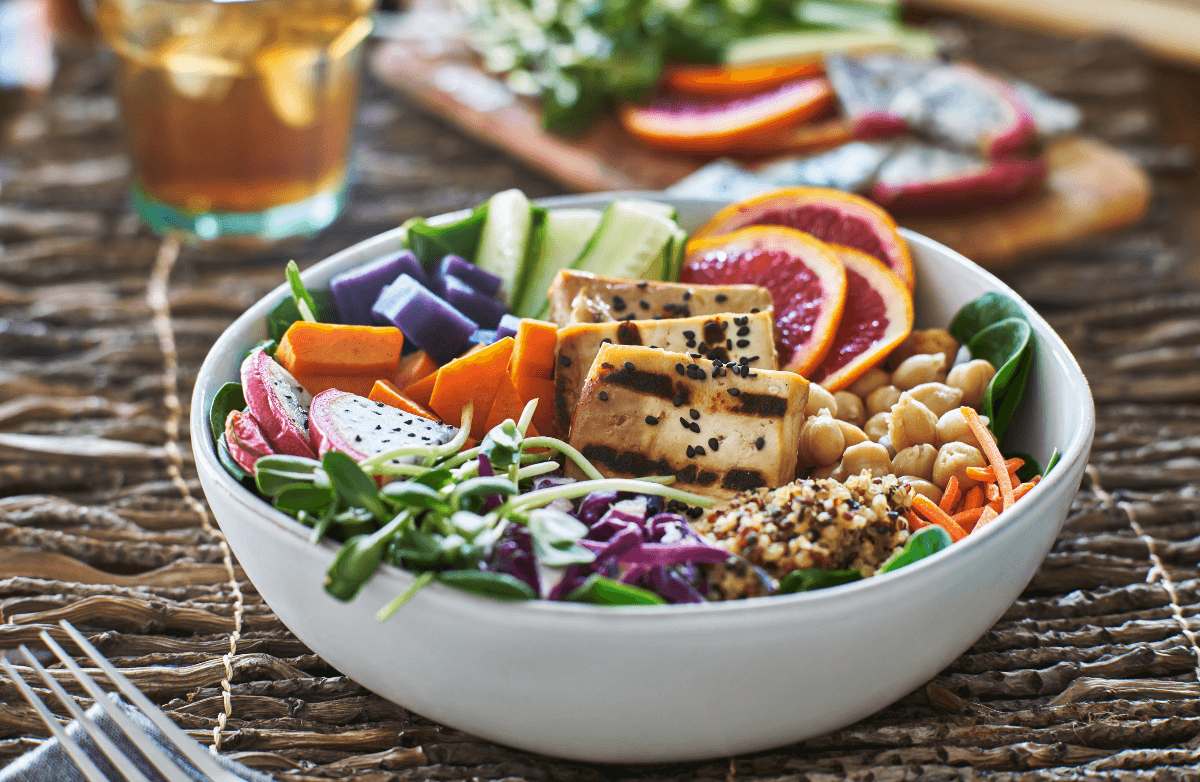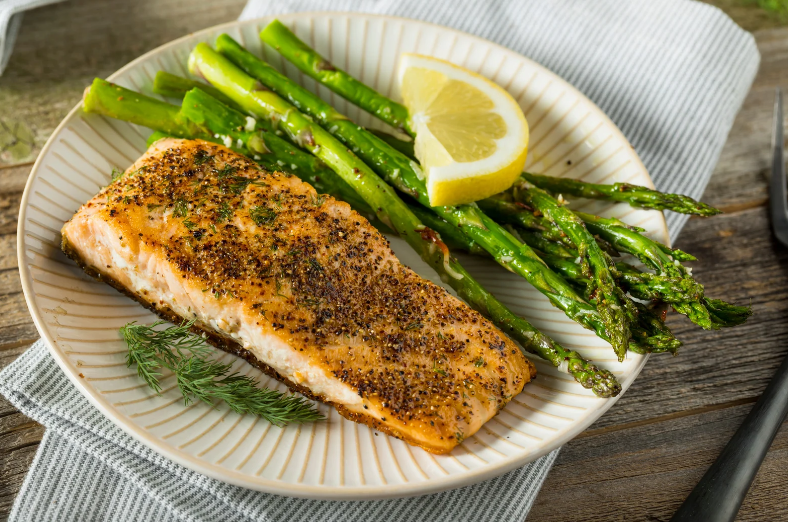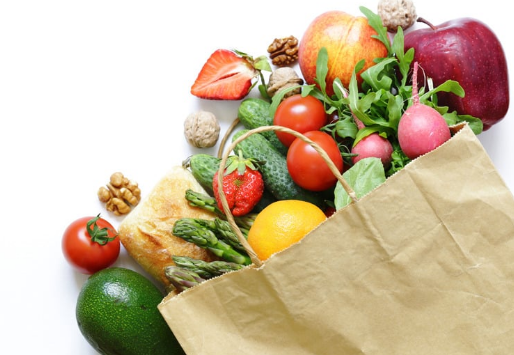
If the term "plant-based diet" conjures images of boring, unsatisfying salads and other "rabbit" food, it's time to rethink the stereotype. Although "plant-based" means most of the food you eat comes from the ground or trees, that category includes not only fruits and vegetables, but also seeds, nuts, whole grains, legumes, beans and oils. While some go the vegetarian or vegan route, deciding to take on a "plant-based" diet doesn't mean you have to give up meat completely. Instead, many use this approach to focus on filling more of their plates with foods from minimally processed plant sources.
Whether you're hoping to make big changes to your diet or just want to cut back on meat here and there, you might be wondering how to take the first step. Do you skip the steak and double up on the veggies? Do you have to learn to like the fake meat masquerading as the real thing? The truth is that there are simple swaps anyone can make to reduce the amount of meat in their diet—without sacrificing flavor or variety.
1. Go 50/50. If the idea of swapping a juicy beef burger for a black bean or mushroom option is less than appealing, trying mixing the two. Cutting back on the amount of meat you're using by adding beans or roasted mushrooms not only allows you to enjoy the meaty flavor you love, but you'll also be elevating your burger with another great source or protein and fiber. Over time, you might find that you can slowly increase the proportion without missing the meat.
2. Incorporate Meatless Mondays. Started in 2003, Meatless Monday encourages people to commit to skipping meat once a week. By starting your week without meat, you may be more likely to incorporate more fruits, vegetables and other plant-based foods into your diet throughout the rest of the week. If you prefer your meaty meals as they are and don't want to make substitutions, having one meat-free day each week might be a better alternative.
3. Experiment with jackfruit. "Swap a pulled chicken or pork barbeque sandwich with jackfruit," suggests health coach Cecilia Serban. If the idea of using fruit as a meat substitute sounds a little crazy, all we ask is that you give it a chance before judging. "Although jackfruit is a fruit, it's not as sweet as you might think," Serban insists. In fact, the subtle sweetness is actually a complement to traditional barbeque sauce. "You can slice it, shred it, dice it and use it as a replacement in many meat recipes," she explains.
4. Discover lentils. "Taco night is a fun dinner [theme] enjoyed by many families. Swapping lentils for meat can easily make the meal plant-based," says dietitian Dina Totosegis. "The key to getting the right texture is cooking the lentils normally (or using a canned version) and pulsing them through the food processor two to three times with your taco seasoning. Then, sauté them with some garlic and onions [before serving]." Lentils can also be used in place of meat for other dishes such as lasagna, meatloaf, meatballs or Sloppy Joes, and they can bulk up many classic soups.
5. Try tofu. Tofu might not sound like the perfect meat substitute, but it's versatile and easily takes on the flavor of the dish you're preparing. If you're a tofu newbie, know that it can be a little intimidating at first. "Firm" or "extra firm" work best in a stir-fry or as a substitute for meat or eggs in any recipe, but you want it to be dry. To get the texture you desire, simply drain the water, place the block of tofu on a paper-towel-lined baking sheet, put a few paper towels and something heavy (like a frying pan) on top to squeeze out most of the liquid. Removing the liquid allows the tofu to absorb more flavor and get crispier when cooking. Cut into cubes and it's ready to fry. You can marinate, sweeten or add spices to tofu for a flavorful addition to any meal.
6. Swap chickpeas for chicken. "For entrees and salads where you typically use grilled chicken, chickpeas are a simple swap," explains registered dietitian nutritionist Talia Hauser. "Drain and rinse a can of chickpeas and add them straight to the [dish], or roast them in the oven [to] give them a nutty flavor and make them crunchy. Before roasting, pat them dry, drizzle one to two teaspoons of olive oil and your favorite spices, then roast on a sheet pan at 450 degrees for 15 to 20 minutes." Chickpeas can also be used in place of tuna. For instance, mash them up with an avocado, salt and pepper to make a meatless tuna salad.
Eating less meat doesn't have to be a difficult task. By making simple substitutions in your favorite dishes or just eating a few meatless meals each week, you can introduce a variety of new foods to your diet. Who knows what kind of creative combinations you'll discover!













